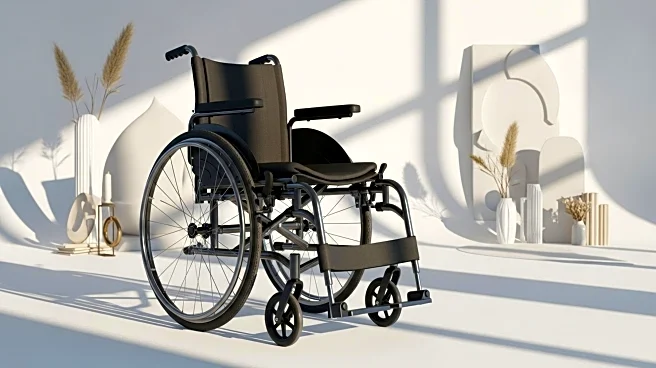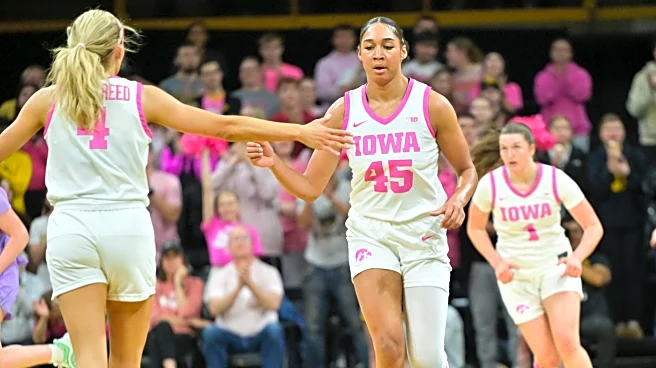What's Happening?
Selma Blair, known for her role in the Hellboy movies, has been actively advocating for disability visibility following her diagnosis with multiple sclerosis (MS). In February 2019, Blair made a significant public appearance at the Vanity Fair Oscars party using a bedazzled cane, which became a pivotal moment in raising awareness for disability visibility. Since then, she has produced a memoir titled 'Mean Baby' and a documentary 'Introducing, Selma Blair,' both offering an unfiltered look into her life with MS. Blair's openness about her condition has been a conscious choice, despite concerns about oversharing, as she aims to be more than just known for her diagnosis. Her disease is currently in remission, and she manages symptoms with over-the-counter medication and rest. Blair continues to work in acting and advocacy, delivering a TED Talk and engaging in business ventures, including collaborations with Benny’s Eyewear and Mersea, and partnering with Evidence Skincare.
Why It's Important?
Selma Blair's advocacy for disability visibility is significant as it challenges societal norms and encourages open discussions about chronic illnesses. Her public appearances and projects have contributed to destigmatizing disabilities, offering hope and community to those affected. By sharing her personal experiences, Blair provides a platform for others to feel seen and understood, potentially influencing public policy and societal attitudes towards disability rights. Her involvement in business ventures also highlights the importance of inclusive products for individuals with specific health needs, promoting awareness in industries such as fashion and skincare.
What's Next?
Blair's continued advocacy and involvement in various projects suggest ongoing efforts to raise awareness and support for disability visibility. Her collaborations with brands like Benny’s Eyewear and Mersea indicate potential growth in inclusive product lines. As Blair remains active in acting and public speaking, her influence may inspire further initiatives and discussions around disability rights and representation. Stakeholders in healthcare, fashion, and entertainment may respond by increasing support for inclusive practices and products.
Beyond the Headlines
Blair's journey with MS and her advocacy work highlight broader ethical and cultural dimensions regarding the representation of disabilities in media and society. Her openness challenges traditional narratives and encourages a shift towards more inclusive and diverse portrayals of individuals with chronic illnesses. This development may lead to long-term changes in how disabilities are perceived and addressed, fostering a more empathetic and supportive environment for affected individuals.










